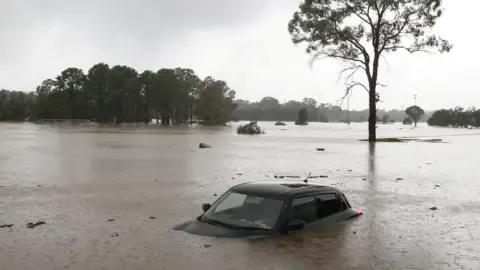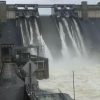As the severe flood in Western Australia continues to worsen, the nation’s supply chains are being pushed to the limit, experts warn. The flood, which has been described as the worst ever, has inundated the Kimberley region, shutting down key roads, bridges, and airstrips, and displacing thousands of people.
The situation highlights the vulnerability of Australia’s supply chains, which have been under strain in recent years due to the Covid-19 pandemic, Russia’s invasion of Ukraine, and China’s ongoing Covid-19 wave. The floods, which have forced the closure of the Great Northern Highway, have made it difficult for essential supplies such as food and medical goods to reach affected communities.
According to Associate Professor Elizabeth Jackson, a supply chain expert from Curtin University, the decision to allow triple road trains to travel enormous distances to deliver supplies is a good example of a rapid response. However, she cautions that the pandemic, Russia’s invasion of Ukraine, and now the floods have demonstrated the need for supply chains to become more agile and nimble.
“We’re not alone in this,” Jackson said. “The strategies that supply chains are employing is essentially going against the grain of usual supply chain strategy, which is to find a quick and reliable supplier and lock in massive quantities of the product you want for years to come.”

Instead, Jackson suggests that supply chains should adopt a multidisciplinary approach, involving biologists, engineers, and local people with local knowledge. This would enable them to respond quickly to disruptions and pivot when something goes wrong.
The emergency services minister, Stephen Dawson, has warned that the situation is far from over, with record water levels expected to hit Looma and Pandanas Park in the coming days. “It’s really an opportunity for us to listen and hear their frustration. I know they’re frustrated,” he said.
To mitigate the impact of the floods, the WA government has launched a distress fund set up by the Perth lord mayor, Basil Zempilas, and announced $3m to support efforts. The Australian Defence Force planes and other aircraft are also being deployed to deliver supplies to affected communities.
The Western Roads Federation’s chief executive, Cam Dumesny, has called for a shift away from the “just in time” approach, where supplies are delayed until needed, to a “just in case” approach, where supplies are stocked up to ensure continuity of supply in the face of disruptions.
As the situation continues to unfold, experts warn that the flood has highlighted the need for Australia’s supply chains to become more resilient and adaptable to the ever-changing environment.

